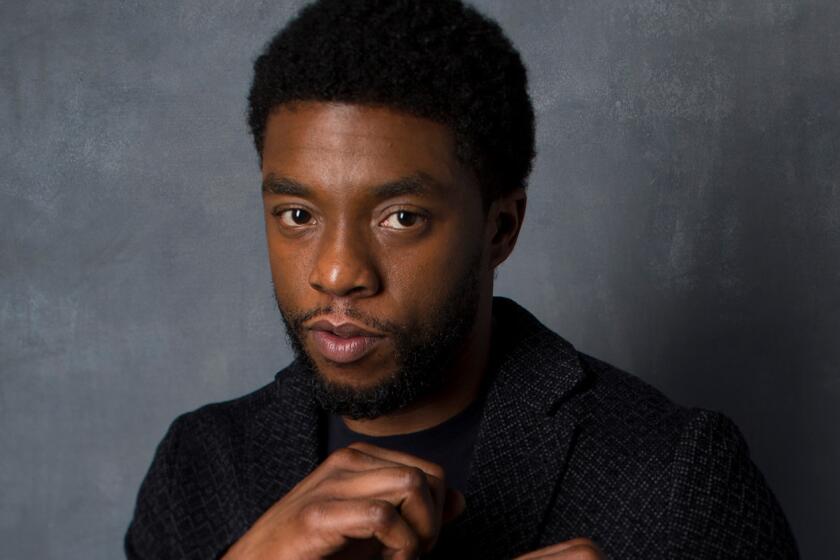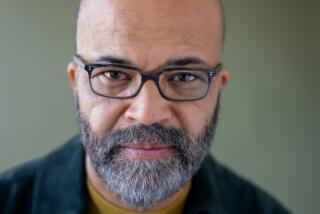Why Letitia Wright had to be persuaded she was ready for the Black Panther’s claws
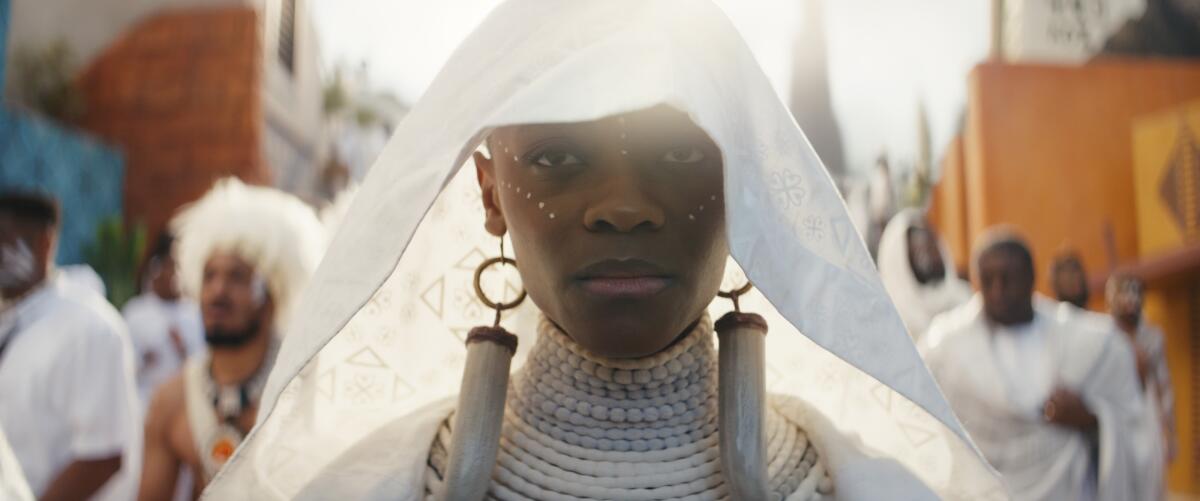
Ryan Coogler‘s 2018 “Black Panther,” starring Chadwick Boseman as King T’Challa, collected $1.3 billion and the Marvel Cinematic Universe’s first best picture Oscar nomination. It was a bona fide cultural phenomenon. Two years later, the 43-year-old Boseman died unexpectedly of colon cancer. When the smoke cleared and the tears dried, Marvel decided not to recast T’Challa, that Boseman’s take on the role was too indelible, too beloved.
Enter Shuri.
Guyanese-British actress Letitia Wright had made a splash as T’Challa’s brilliant sister with the spicy attitude (perhaps the smartest character in the MCU) in three films. In the comics, Shuri eventually shared the Panther mantle — ironically, due to T’Challa’s serious illness — so the notion of her ascension wasn’t entirely alien. It just wasn’t supposed to happen yet.
“It was something that we always kind of touched on a little bit,” says Wright by phone. “I knew eventually Ryan’s plan was to possibly have Shuri being Black Panther alongside her brother and seeing the ways in which the sibling dynamic can really be explored onscreen.”
Turns out the person she casually calls her brother is Boseman, rather then T’Challa.
Actor Chadwick Boseman died Aug. 28 at the age of 43.
“I met Chad in 2016 when I was doing screen tests. I remember feeling in my belief system and my faith that if this was meant to happen, this man will be my brother. I remember walking in and connecting with him in a way that was really profound and I’d never had with someone I’d just met. So from that day onward, it was a real beautiful connection as siblings, really. If he was in London, he would text me and be like, ‘Hey, Little Sister, I need to lay eyes on you. Let’s go grab something to eat.’
“Yeah, that’s literally my brother. Processing his passing is something [the ‘Panther’ cast and crew are] still struggling with. It’s surreal for us to even be having this conversation about him not being here.”
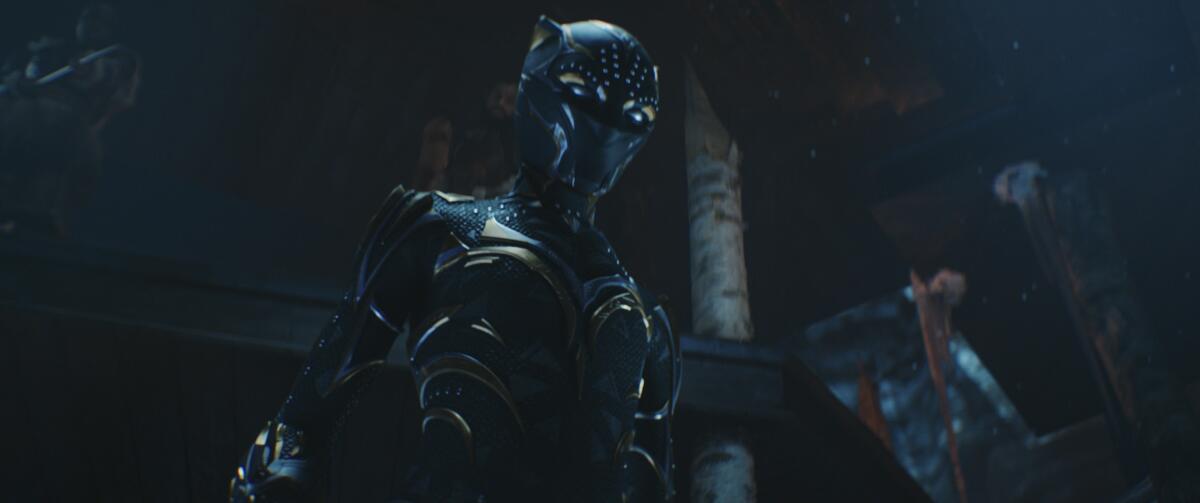
When Coogler laid out for her how she would become the center of the franchise in “Black Panther: Wakanda Forever,” instead of it being something a 20-something actor could celebrate, “It was bitter because it wasn’t in the way I expected.” And then there was the responsibility of replacing a phenomenon.
She credits the support of the cast and crew — especially of Coogler and co-star Danai Gurira — with making that transition possible.
“Danai has an immense amount of strength. She’s been encouraging me for a very long time. She was one of the first people I spoke to when Chad passed, telling me that everything’s going to be OK.” And as for becoming Wakanda’s protector, Wright says Gurira told her, “‘I believe in you. I believe that Chad believes in you and that you can do it.’
“When I had my accident on set,” says Wright of the motorcycle tumble she took while filming, “she was always on the phone praying for me, speaking powerful, encouraging words and scriptures over me.”
Wright was no stranger to the responsibilities of carrying a project, but this one came with the extra challenge of “beating the impostor syndrome that I felt while doing it. Ryan had to beat that out of me very quickly with positive words: ‘There’s no one else that fits this right now. Trust the process, trust that this is meant for you.’ ”
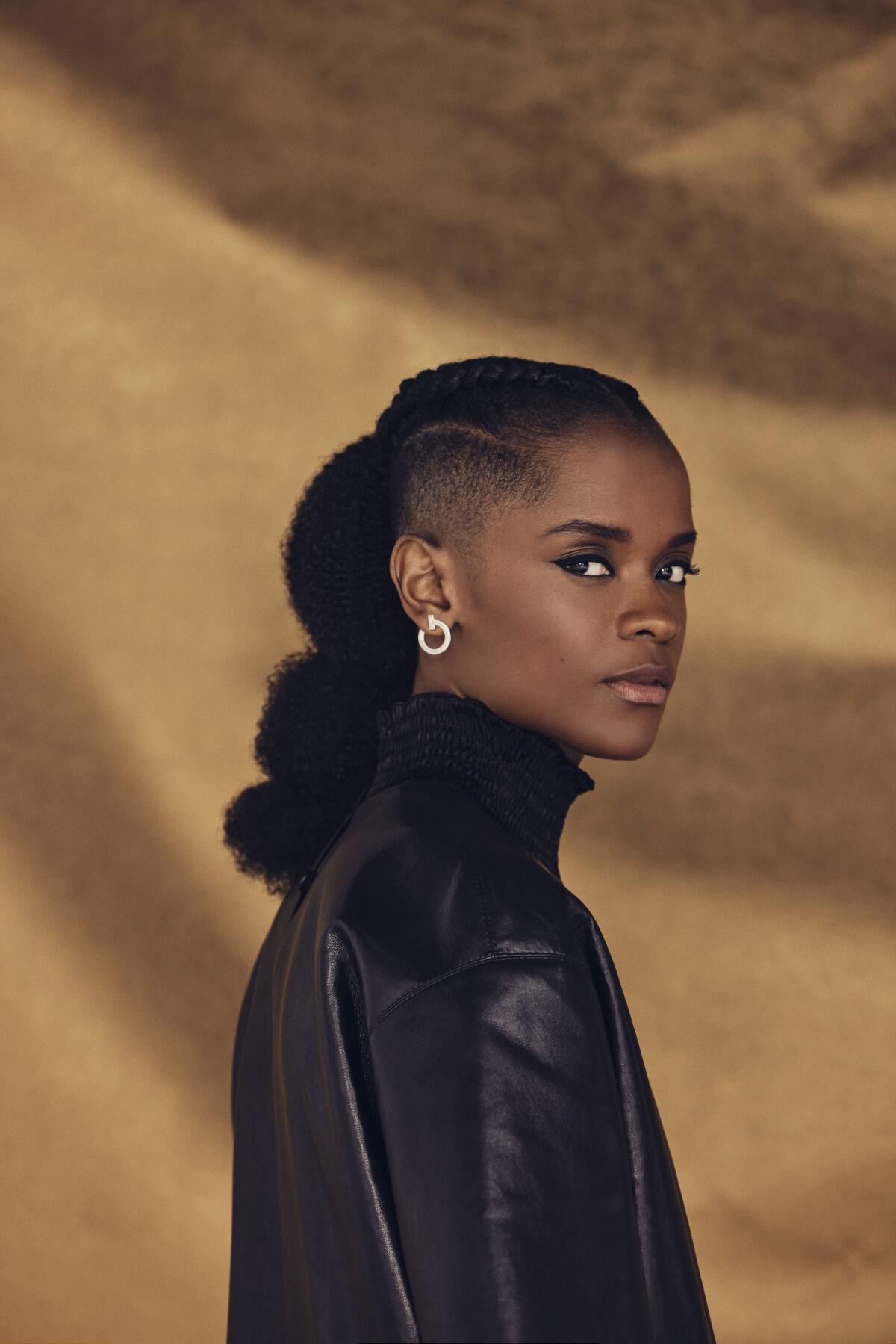
So when was she sure she really could do the job? There was one scene with her ally M’Baku (Winston Duke) exploring why Shuri should become the Panther that provided Wright clarity, and one other ... during reshoots.
“It was a scene between myself and Namor [Tenoch Huerta] that we were fleshing out a little bit more, the ways in which Shuri’s confidence rose to the occasion: ‘I belong to one of the most powerful nations in the world ... so we should settle this in a peaceful manner.’
“It shows her growth and the way she was reflecting on the way her brother did everything, the way he carried himself. Watching and observing my brother and the way he carried his role as T’Challa — I [realized] I have what it takes as an artist, as an actress, to go to places people probably didn’t think I could with this character.”
She laughs when it’s pointed out this happened after principal photography had been completed.
“I mean, yeah yeah yeah. Hey man, it took me a while!
“I feel like I’m on a transformative journey and I’m happy I got to represent Shuri, to be a vessel for Shuri to process some pain, because that helped me as well. And I feel like I’m growing as a woman as well; I’m definitely tapping into that level of maturity I need for the next section of my life, really. So all in, it’s been a beautiful experience and I am much stronger.”
More to Read
From the Oscars to the Emmys.
Get the Envelope newsletter for exclusive awards season coverage, behind-the-scenes stories from the Envelope podcast and columnist Glenn Whipp’s must-read analysis.
You may occasionally receive promotional content from the Los Angeles Times.
